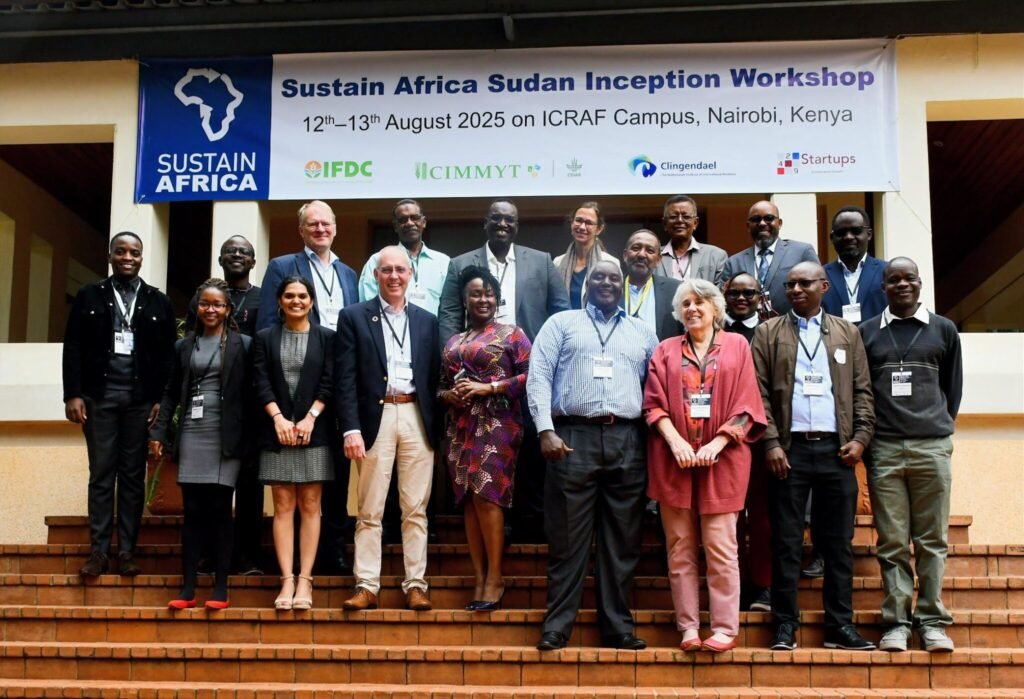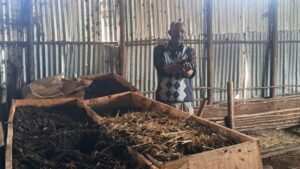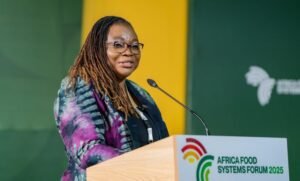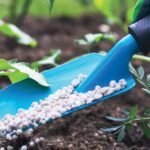By Zablon Oyugi September 9, 2025 – Partners from across Africa and beyond have launched an ambitious initiative aimed at reviving Sudan’s agri-food systems and addressing urgent food insecurity through smallholder support.
In a meeting convened in Nairobi mid late last month, the Sustain Sudan Project brought together key stakeholders—Sustain Africa, International Fertilizer Development Center (IFDC), International Maize and Wheat Improvement Center (CIMMYT), the Clingendael Institute, and 249Startups—alongside donors and private-sector representatives.
Over two days, participants aligned strategies, refined operational plans, and reaffirmed their commitment to supporting Sudanese farmers amid the ongoing humanitarian crisis.
Sudan now faces one of its most severe humanitarian crises—amid more than two years of conflict between the regular army (SAF) and the Rapid Support Forces (RSF). This unrest has left over half of the population—some 25 million people—acutely food insecure.
Cereal harvests in 2023 were nearly halved, and the country is bracing for a shortfall of around 1.9 million metric tons this year. Before the conflict, Sudan was self-sufficient in grains; today, fields lie fallow, input prices have skyrocketed, and entire communities have been displaced.
Yet despite these challenges, Sudan’s agricultural potential remains resilient. Recognizing this, Sustain Sudan is leveraging market-based strategies to restore input supply chains. The project emphasizes affordable access to key inputs—fertilizer, seeds, and crop protection products—especially in safer regions, thereby helping smallholders maintain production where it’s feasible.
“Our mission is simple but urgent: availability of fertilizer for the entire country of Sudan, affordability for the smallholder farmers who need it most,” said Ben Valk, the Project Lead and Strategic Coordinator from Sustain Africa.
The initiative works through agro-dealers, logistics providers, and financial institutions to strengthen the private sector and keep supply chains functioning—even in times of crisis.
Political and conflict sensitivity are central to this effort. Anette Hoffmann, Political and Conflict Adviser at the Clingendael Institute, emphasized that decisions about delivery must be guided by local dynamics to avoid unintentionally exacerbating tensions. Deliveries will begin in safer areas, expanding only as conditions permit.
CIMMYT plays a pivotal role as the lead implementing partner. Moses Siambi, CIMMYT’s Regional Director for Africa, highlighted the use of evidence-based, tech-supported systems: digital tracking, market oversight, and targeted agronomic extension to ensure inputs are used effectively, markets remain intact, and food security is reinforced.
The project sets bold, measurable goals. For the 2025–2026 season, it plans to distribute 260,000 metric tons of subsidized fertilizers and essential farm inputs, covering 1.7 million acres of farmland. The initiative intends to reach 350,000 farmers directly and support two million households overall.
Targeted training, a voucher system, digital advisory services, and minimum 30% retail price discounts are core to the approach. Yield gains of at least 40% over non-fertilized plots are projected, reflecting a clear focus on productivity and impact at scale.
While the immediate emphasis is on the winter 2025 season—with 50,000 metric tons of fertilizers such as DAP, urea, ammonium sulfate, and NPK blends slated for delivery—the project also plans to expand to seeds and crop protection products in 2026, scaling up farmer outreach and support.
The longer vision is resilience: by catalyzing private-sector recovery, building reliable distribution networks, and reinforcing market integrity through tools like bulk procurement, trade guarantees, and transport insurance, the Sustain Sudan Project aims to leave behind a durable, locally-driven agri-market ecosystem—even after the conflict subsides.
This coordinated, multi-stakeholder effort underscores a timely, pragmatic commitment to restoring Sudan’s agricultural backbone—not through charity, but through markets, partnerships, and resilience.







